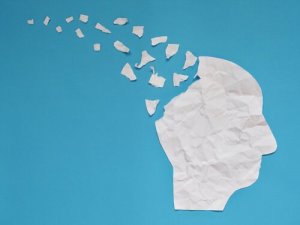The 5 Keys to Preventing Digital Dementia

It’s impossible to talk about digital dementia without talking about German psychiatrist Manfred Spitzer. Thanks to his work, we now know that digital dementia is the reduction of our cognitive abilities due to the misuse of new technologies. This kind of dementia is similar to age-related dementia.
Twenty years ago, this kind of research would have been written off as ridiculous. How could humans let themselves be dominated by technology? People thought that a social animal with the capacity for reasoning and innovation would never fall so low. However, our misuse of technology has consequences that we’re just now starting to see. In fact, the youngest generation is more susceptible to suffering from short-term memory problems.
Spitzer argues that the misuse of new technologies reduces cognitive performance and memory. What’s more, he highlights that the brain works more or less like a muscle. If you use it, it gets stronger. If you don’t use it, it atrophies. That’s why it’s so important to stimulate and exercise your mind.
Addiction to technology causes digital dementia or diminished cognitive abilities.

How to prevent digital dementia
We live in a hyperconnected world. Small children use smartphones and computers all the time. They’re quick to google whatever doubt or question they have without making any effort to reflect or figure it out for themselves. That’s why digital dementia is on the rise. But what can we do about it?
Set time limits
Define a specific schedule for using your phone. If you need it for work, try to respect your time off (which is also very important). For example, try to take a break to use your phone right after dinner or when you have completed all your pending tasks.
Don’t forget to spend time with your family, friends, or partner. Never give up time with them to spend more time on social networks. That doesn’t mean that you can’t check them. Just make sure that you’re using them in moderation. It’s all about balance.
“Technology is nothing. What’s important is that you have a faith in people, that they’re basically good and smart, and if you give them tools, they’ll do wonderful things with them.”
-Steve Jobs-
Find a hobby
Learn to play an instrument, sign up for Spanish classes, or go to the gym. Find a healthy pastime that will help you forget the digital world. If you can, find a hobby that makes you think and use your analytical skills.
Using “brain training” games on your computer doesn’t count! Focus on the real world and on exercises you can do with a pencil and paper. Get your family and friends together and spend a nice evening with them.

Go outside
Go outside and enjoy nature. It doesn’t matter if it’s cold or rainy since every season has something wonderful to offer. If you live in the city, there are probably hundreds of parks with walking and running trails. Doing this is great for your lungs, but more importantly, it’s good for your mind.
You might not want to do it at first, but try to make a habit of it. Little by little, your body and your brain will get used to it and you’ll look forward to being outside, rain or shine.
Force yourself to think
The next time you want to take the easy way out, stop yourself. Ask yourself how you would have done it without the Internet. You’ll realize that there are many alternatives to using some device or another.
Be introspective and reflect. Is it possible to get an answer without looking for it online? Wouldn’t it be better to read a book every once in a while? Don’t let your brain get rusty! Life expectancy increases all the time. Thus, we need to keep our brains as active as possible.

Opt for books instead of TV shows
Watching TV is a fun hobby, but it shouldn’t be your only activity. If you like to escape and immerse yourself in stories, try picking up a book. It’s better for your eyes and your imagination.
Literature helps increase your creativity. Consequently, you develop a part of your brain that’s often inactive. Letting your inner child flourish is always a great option.
Digital dementia is a problem that affects more and more people every day. It’s easy to fight, but you have to do your part. Anyone you ask will tell you that after a hard work day, all they want to do is throw themselves on the couch and play with their phone or watch a movie.
The routine use of new technologies can be dangerous. Try to spend at least an hour a day outside. Your body and your brain will thank you for it. Don’t forget that limiting your use of technology won’t isolate you from other people if you don’t want it to. After all, real life is much more interesting than a digital one.
This text is provided for informational purposes only and does not replace consultation with a professional. If in doubt, consult your specialist.








